IMA 2013 UQ: DFT-based Thermal Properties: Three Levels of Error Management
IMA 2013 UQ: DFT-based Thermal Properties: Three Levels of Error Management
-
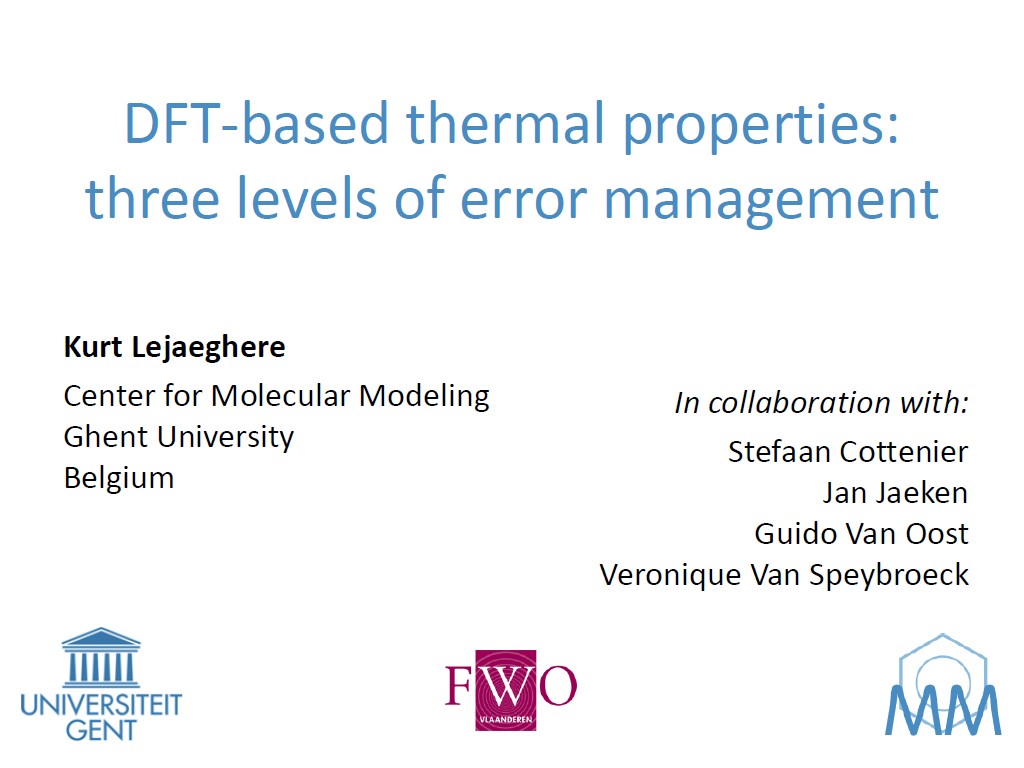 1. DFT-based thermal properties: …
0
00:00/00:00
1. DFT-based thermal properties: …
0
00:00/00:00 -
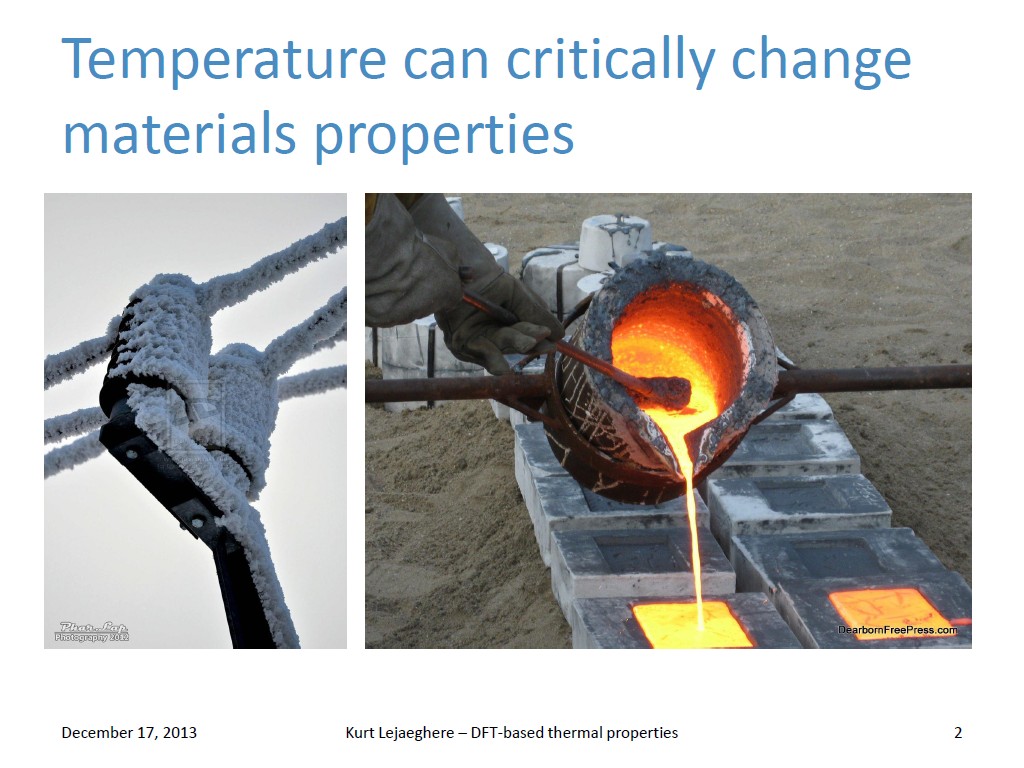 2. Temperature can critically cha…
12.645979312645979
00:00/00:00
2. Temperature can critically cha…
12.645979312645979
00:00/00:00 -
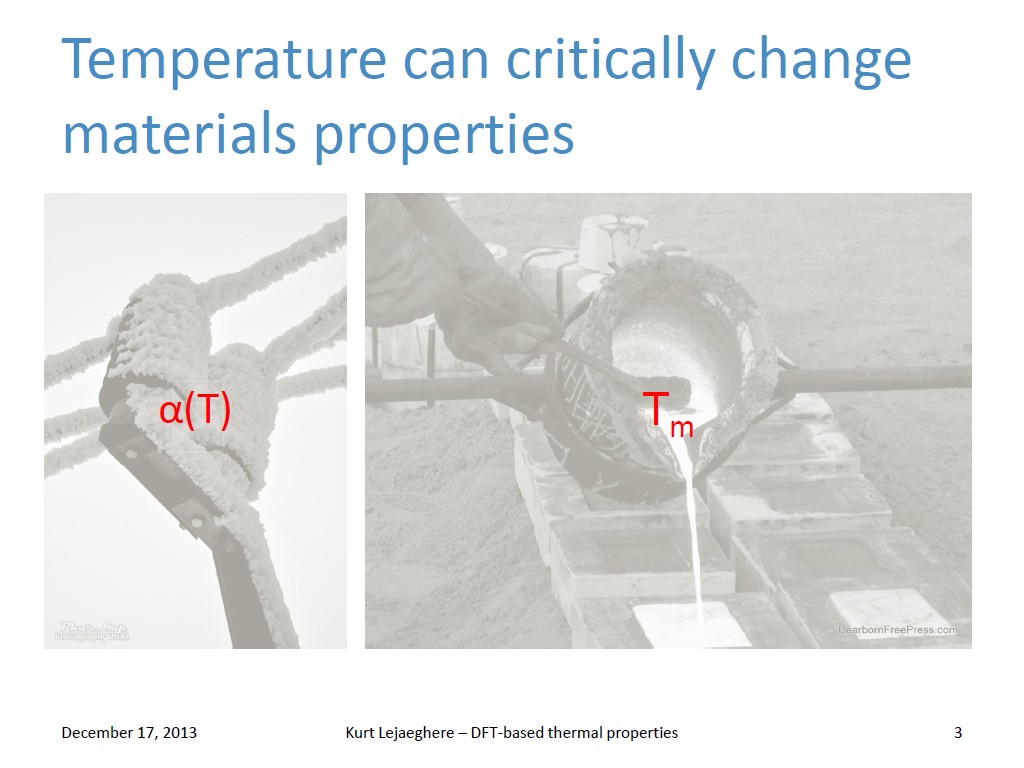 3. Temperature can critically cha…
58.758758758758759
00:00/00:00
3. Temperature can critically cha…
58.758758758758759
00:00/00:00 -
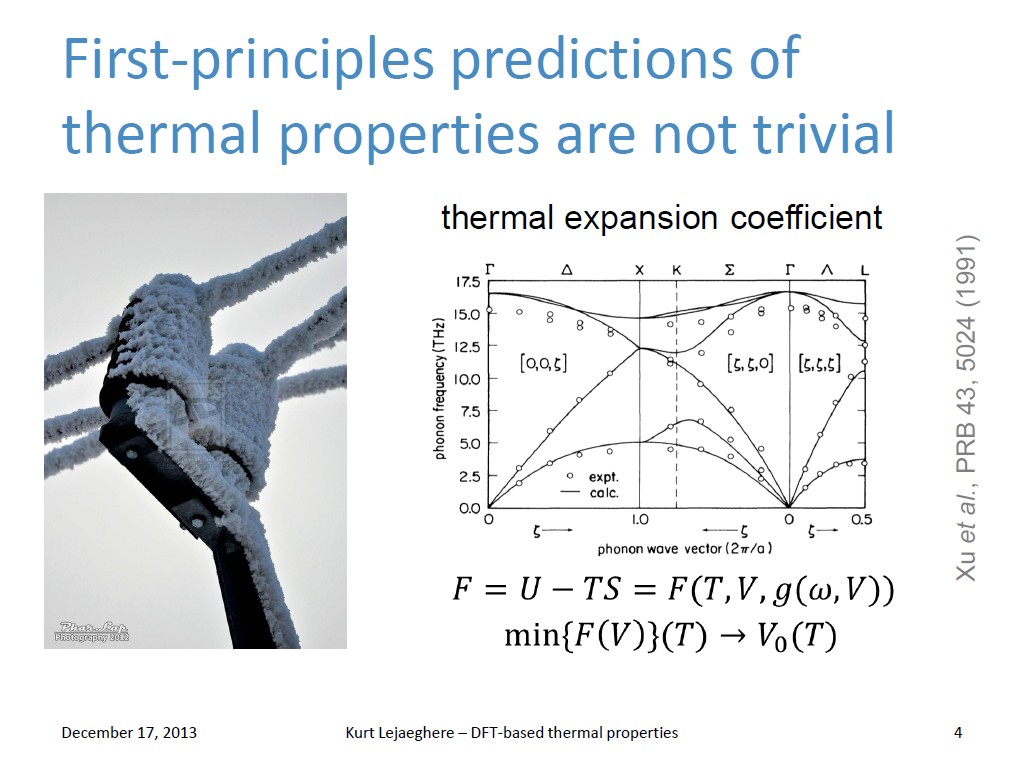 4. First-principles predictions o…
75.508842175508846
00:00/00:00
4. First-principles predictions o…
75.508842175508846
00:00/00:00 -
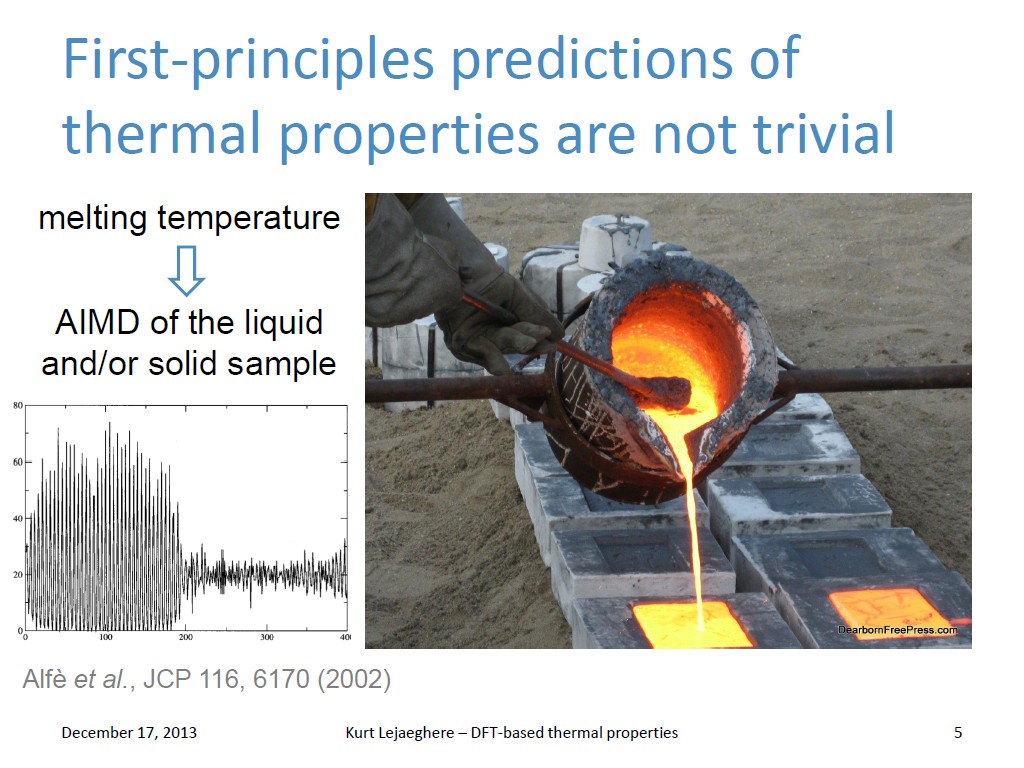 5. First-principles predictions o…
155.7223890557224
00:00/00:00
5. First-principles predictions o…
155.7223890557224
00:00/00:00 -
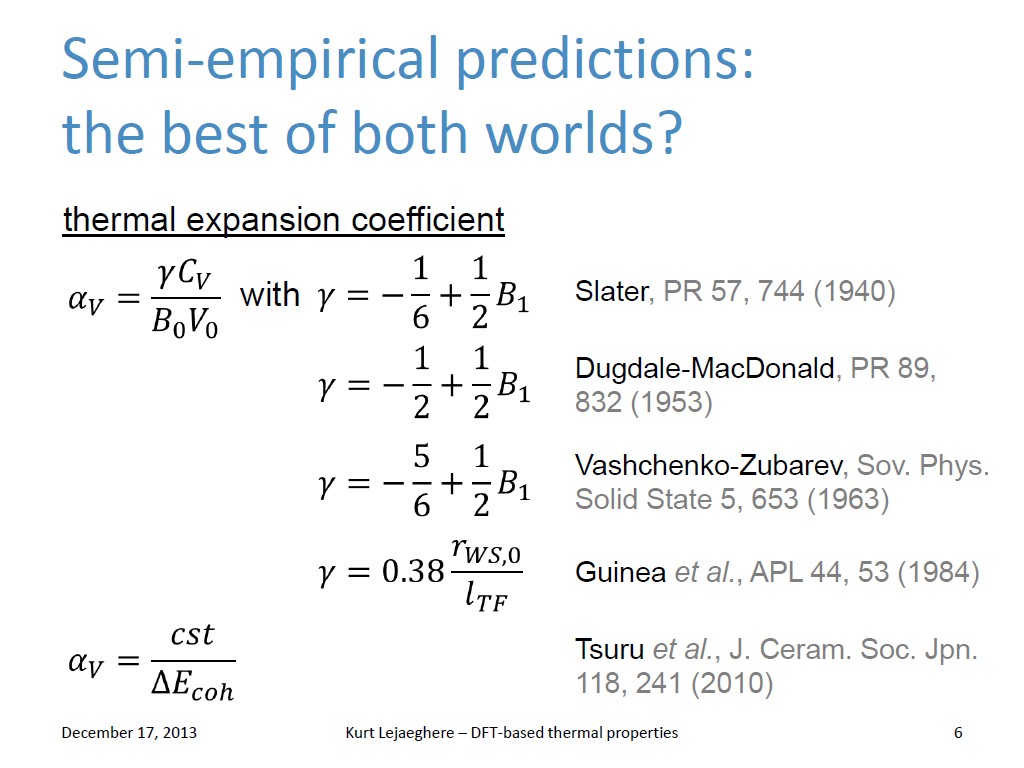 6. Semi-empirical predictions: th…
264.76476476476478
00:00/00:00
6. Semi-empirical predictions: th…
264.76476476476478
00:00/00:00 -
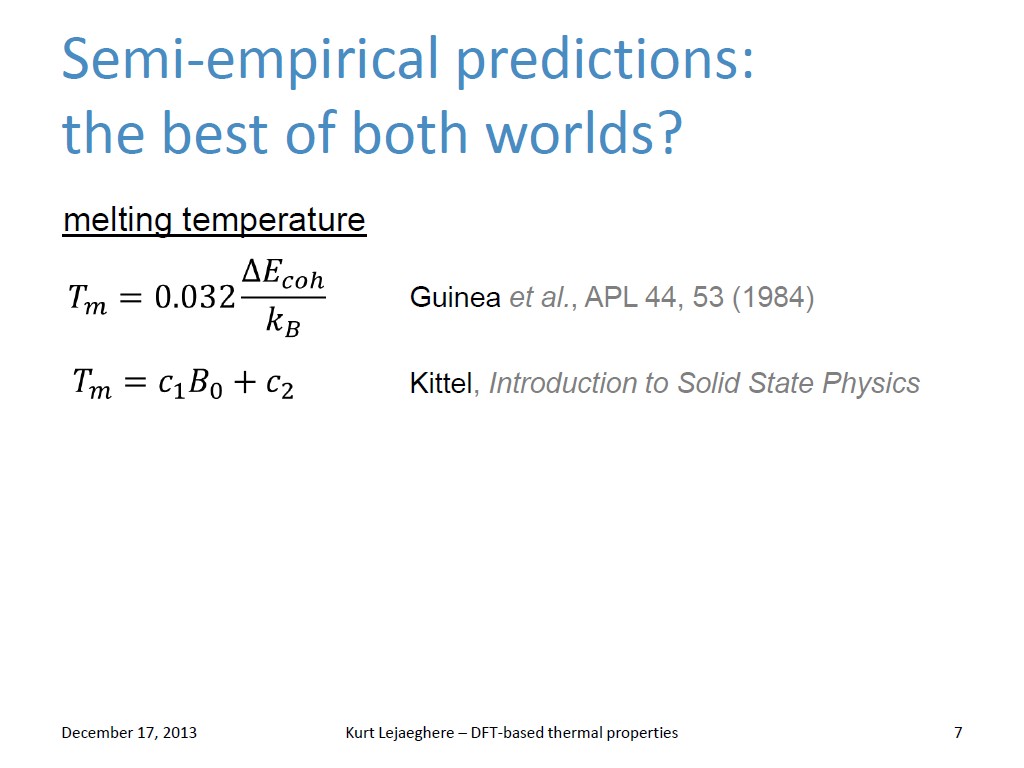 7. Semi-empirical predictions: th…
474.40774107440774
00:00/00:00
7. Semi-empirical predictions: th…
474.40774107440774
00:00/00:00 -
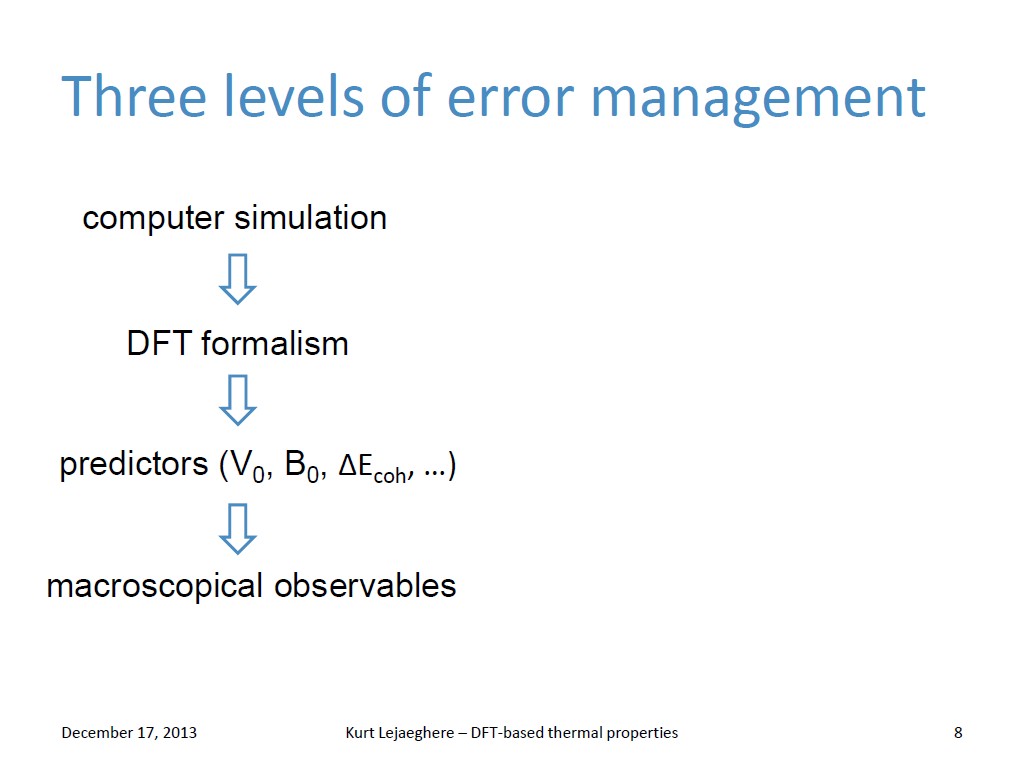 8. Three levels of error manageme…
507.17384050717385
00:00/00:00
8. Three levels of error manageme…
507.17384050717385
00:00/00:00 -
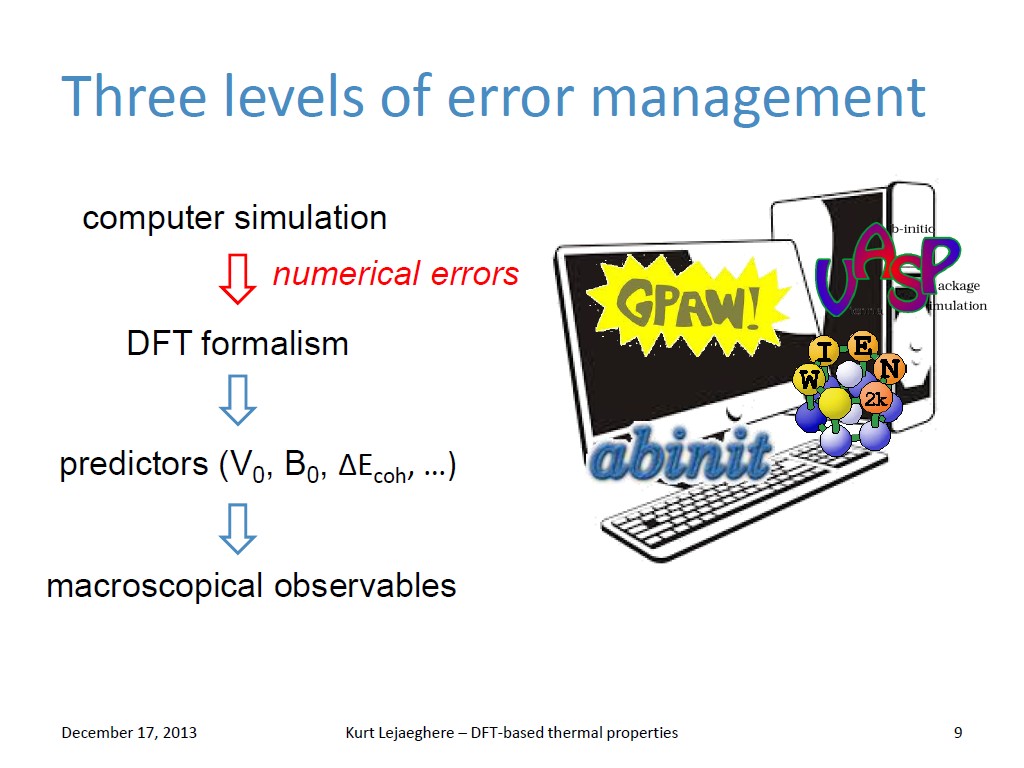 9. Three levels of error manageme…
536.50316983650316
00:00/00:00
9. Three levels of error manageme…
536.50316983650316
00:00/00:00 -
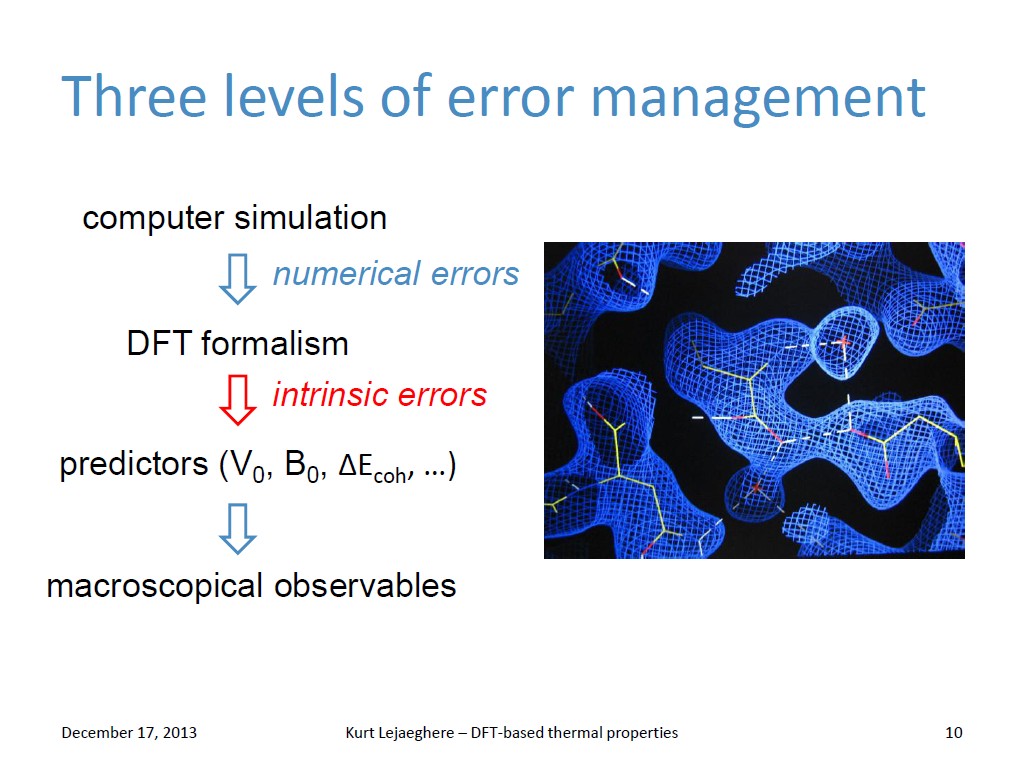 10. Three levels of error manageme…
575.90924257590927
00:00/00:00
10. Three levels of error manageme…
575.90924257590927
00:00/00:00 -
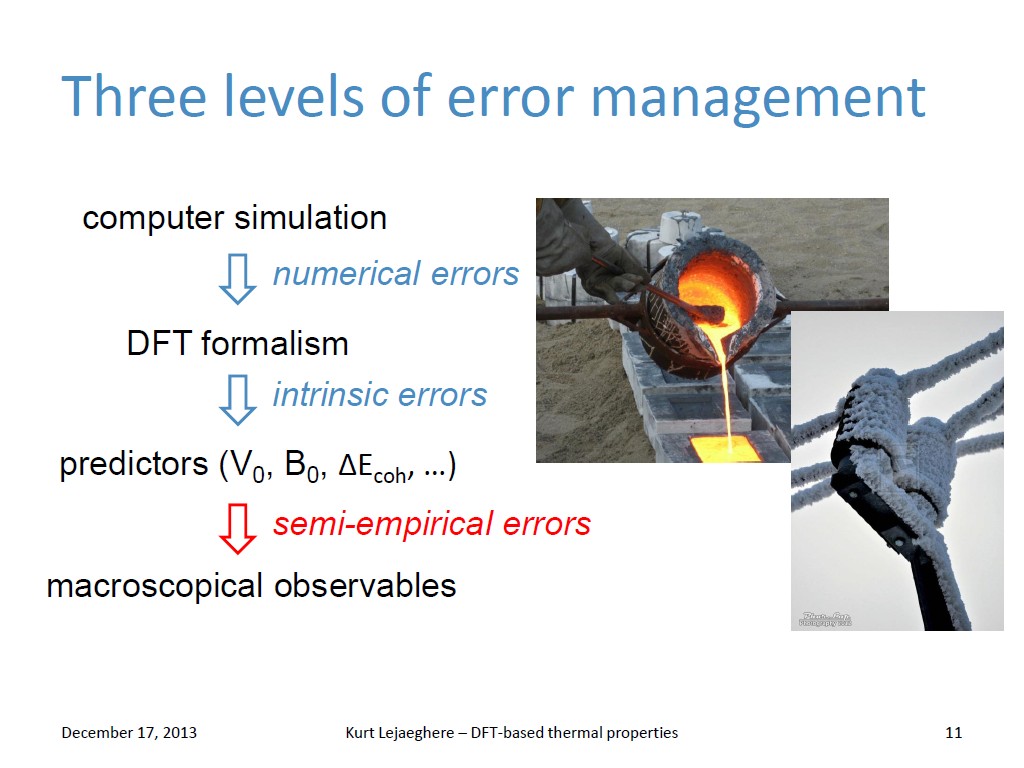 11. Three levels of error manageme…
612.21221221221219
00:00/00:00
11. Three levels of error manageme…
612.21221221221219
00:00/00:00 -
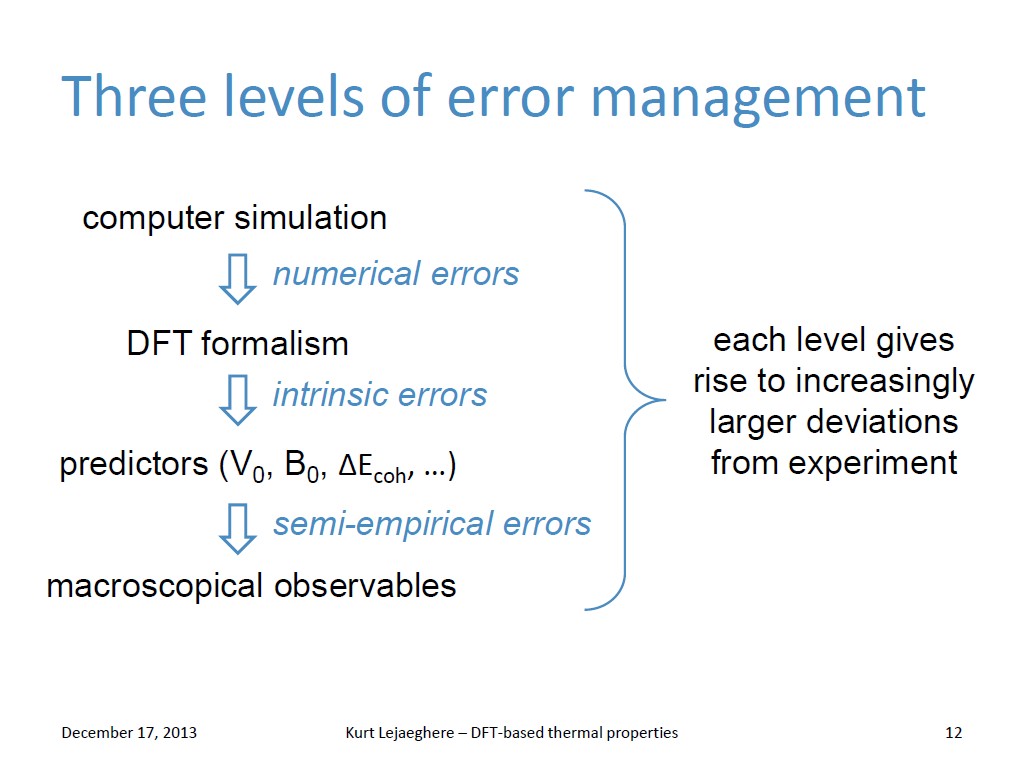 12. Three levels of error manageme…
630.73073073073078
00:00/00:00
12. Three levels of error manageme…
630.73073073073078
00:00/00:00 -
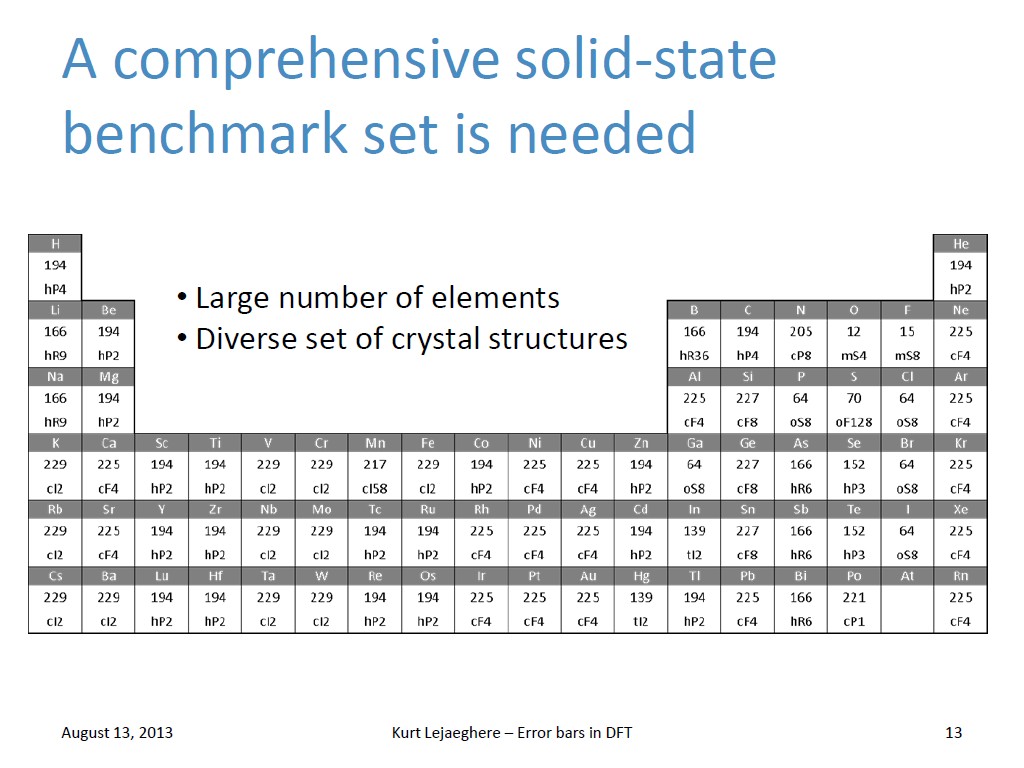 13. A comprehensive solid-state be…
707.70770770770775
00:00/00:00
13. A comprehensive solid-state be…
707.70770770770775
00:00/00:00 -
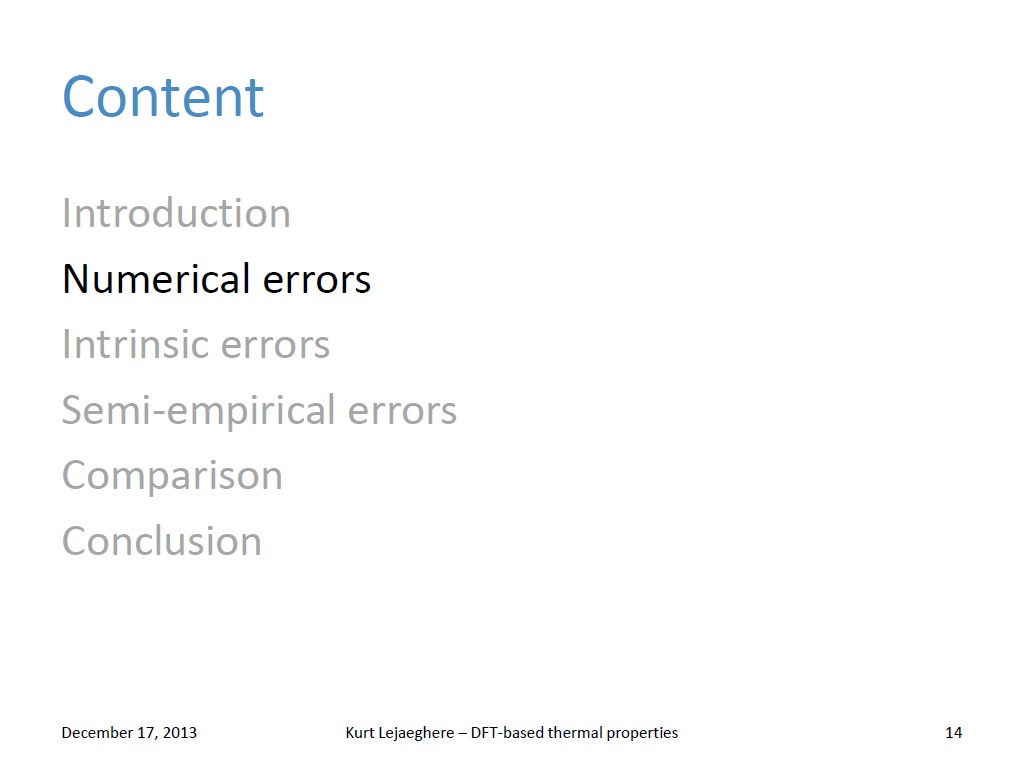 14. Content
730.69736403069737
00:00/00:00
14. Content
730.69736403069737
00:00/00:00 -
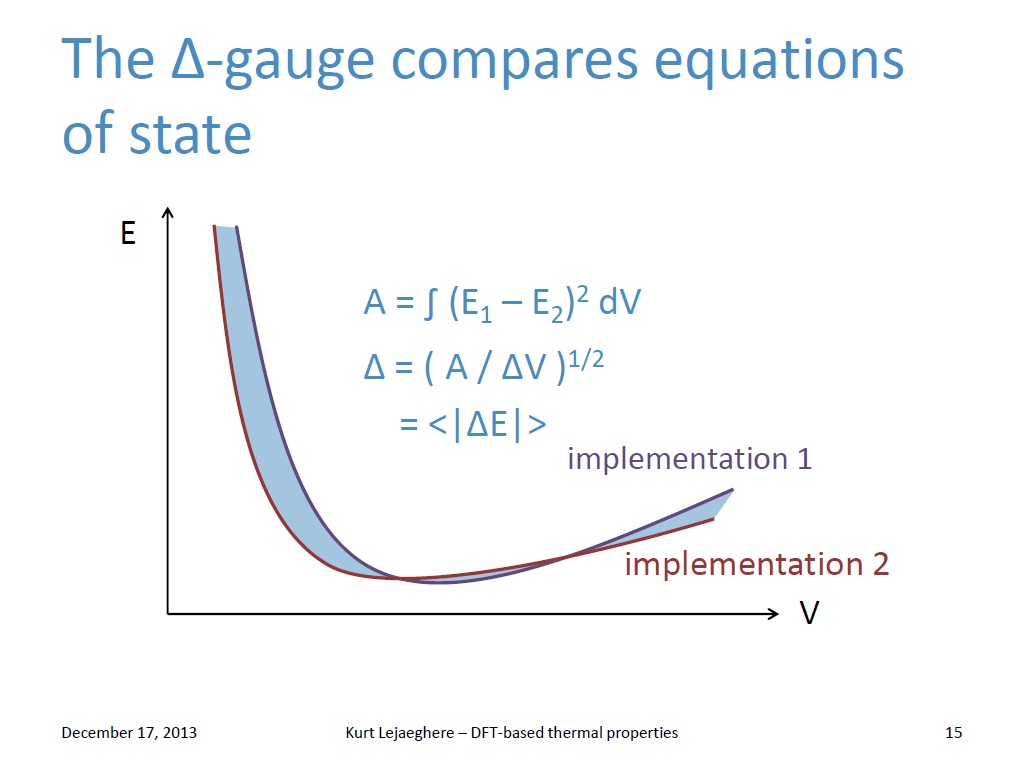 15. The Δ-gauge compares equation…
734.76810143476814
00:00/00:00
15. The Δ-gauge compares equation…
734.76810143476814
00:00/00:00 -
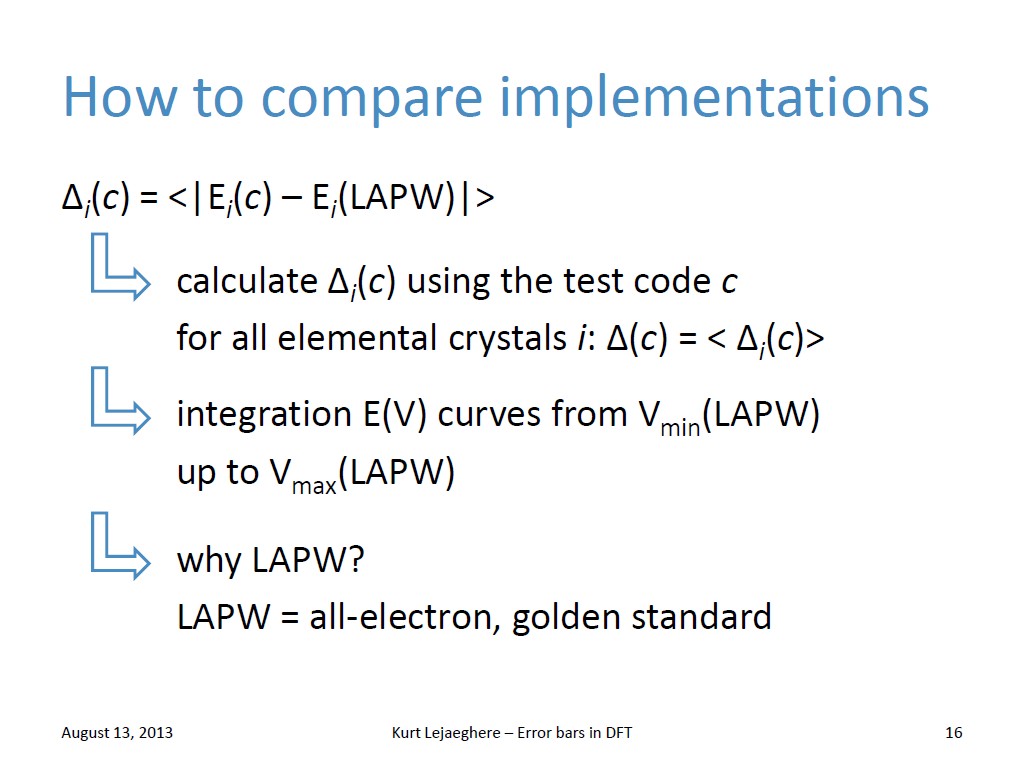 16. How to compare implementations
793.5935935935936
00:00/00:00
16. How to compare implementations
793.5935935935936
00:00/00:00 -
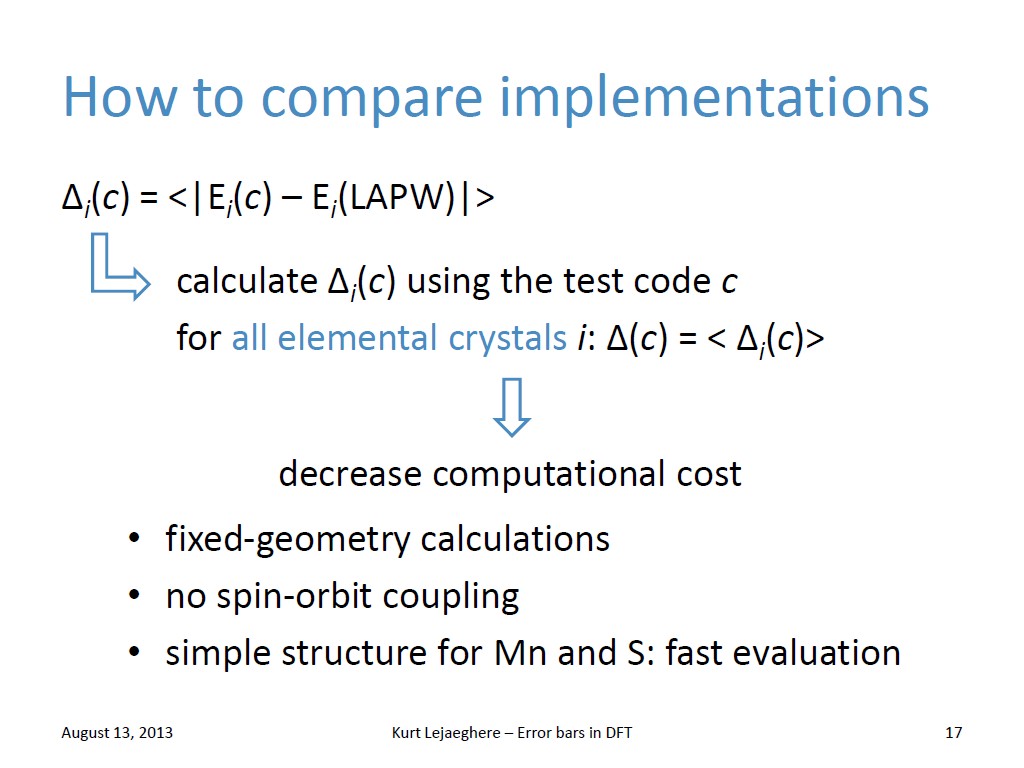 17. How to compare implementations
839.73973973973978
00:00/00:00
17. How to compare implementations
839.73973973973978
00:00/00:00 -
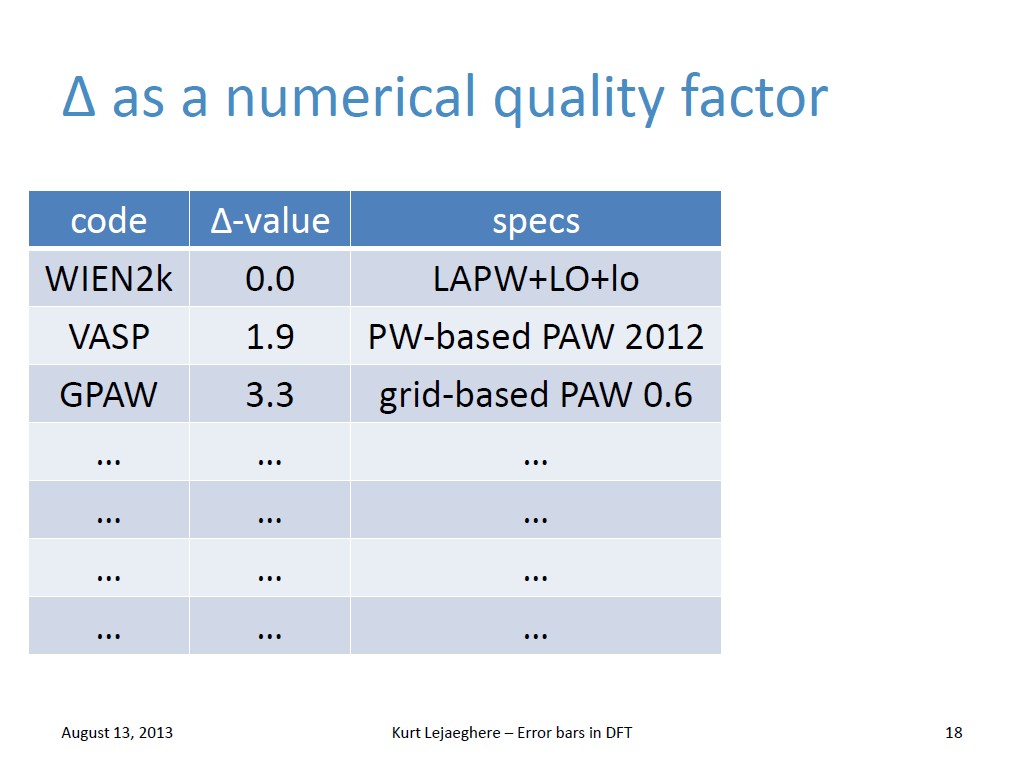 18. Δ as a numerical quality fact…
886.15281948615291
00:00/00:00
18. Δ as a numerical quality fact…
886.15281948615291
00:00/00:00 -
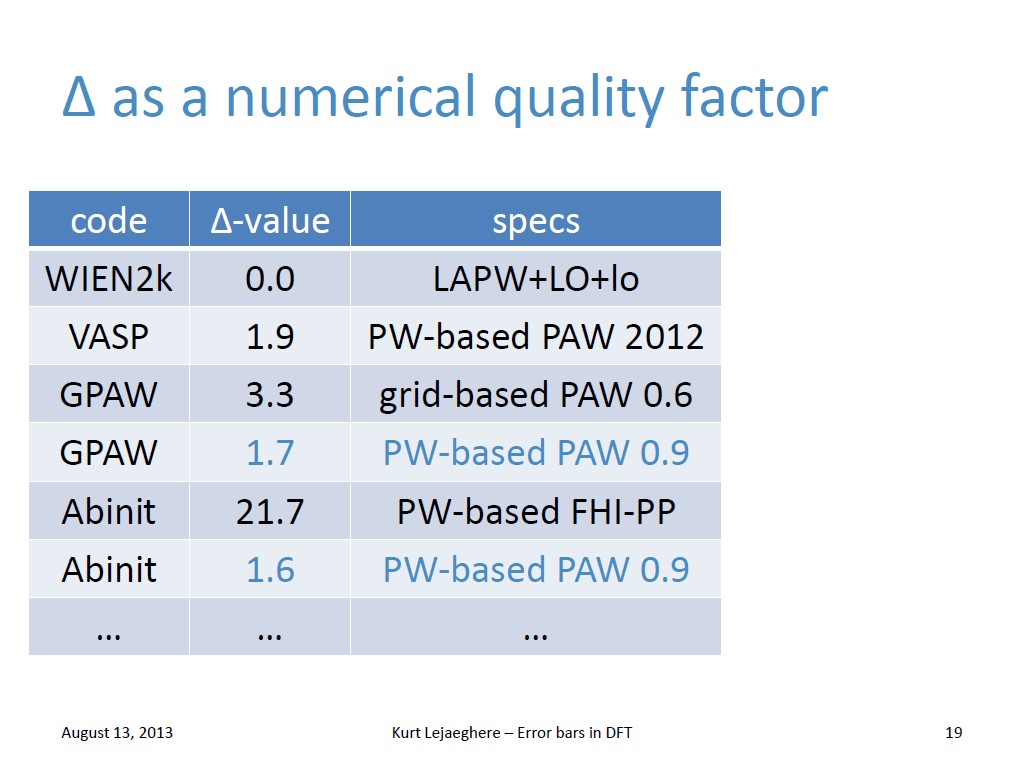 19. Δ as a numerical quality fact…
920.72072072072081
00:00/00:00
19. Δ as a numerical quality fact…
920.72072072072081
00:00/00:00 -
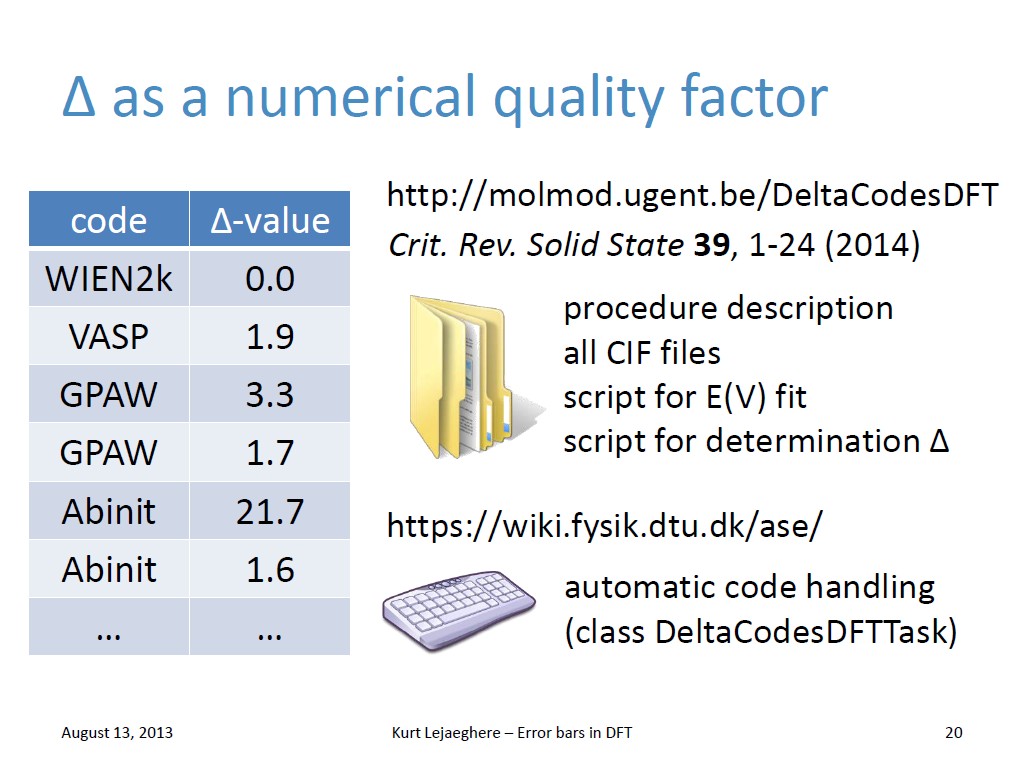 20. Δ as a numerical quality fact…
1072.2055388722056
00:00/00:00
20. Δ as a numerical quality fact…
1072.2055388722056
00:00/00:00 -
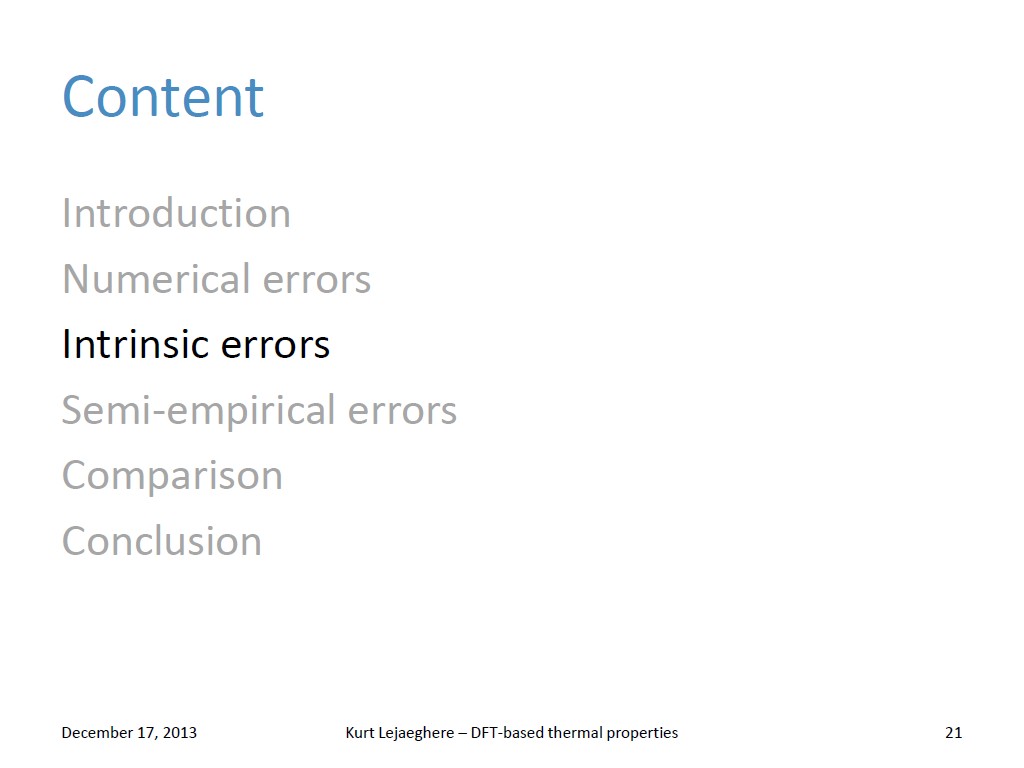 21. Content
1100.3003003003003
00:00/00:00
21. Content
1100.3003003003003
00:00/00:00 -
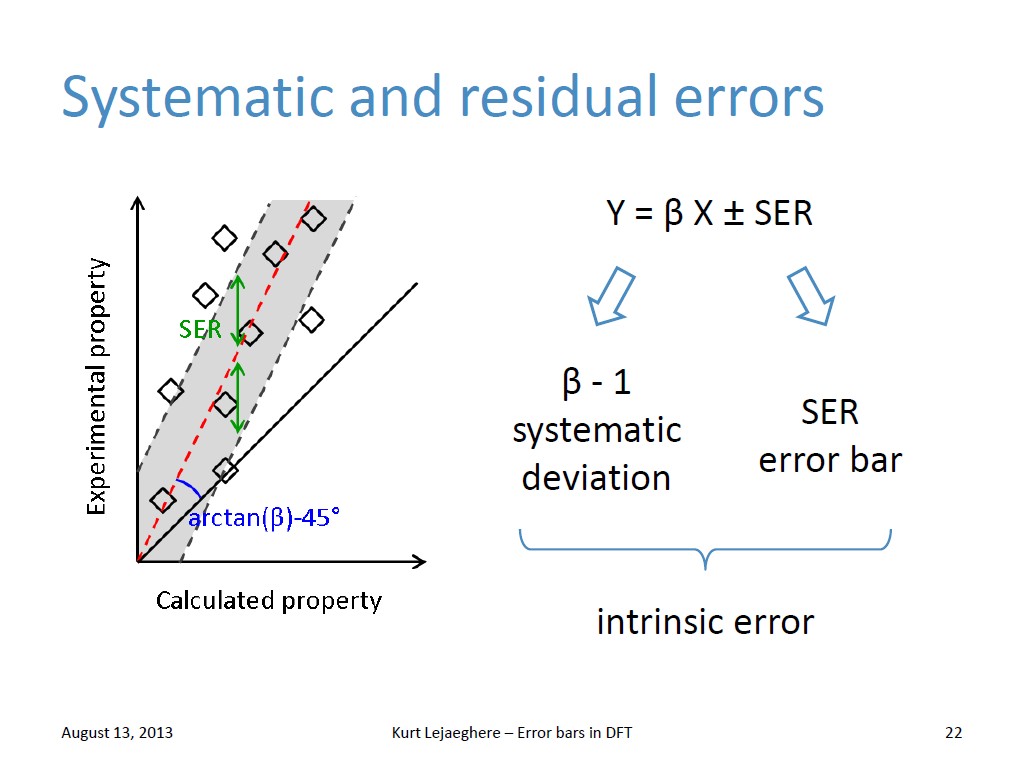 22. Systematic and residual errors
1118.7854521187855
00:00/00:00
22. Systematic and residual errors
1118.7854521187855
00:00/00:00 -
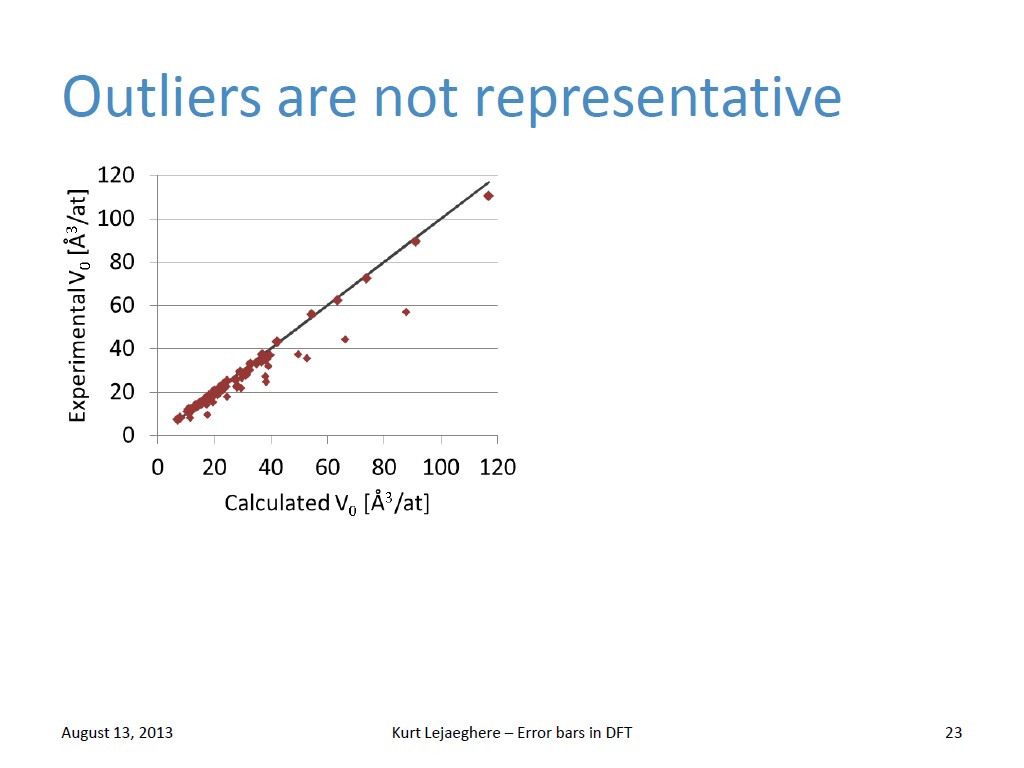 23. Outliers are not representativ…
1162.6626626626628
00:00/00:00
23. Outliers are not representativ…
1162.6626626626628
00:00/00:00 -
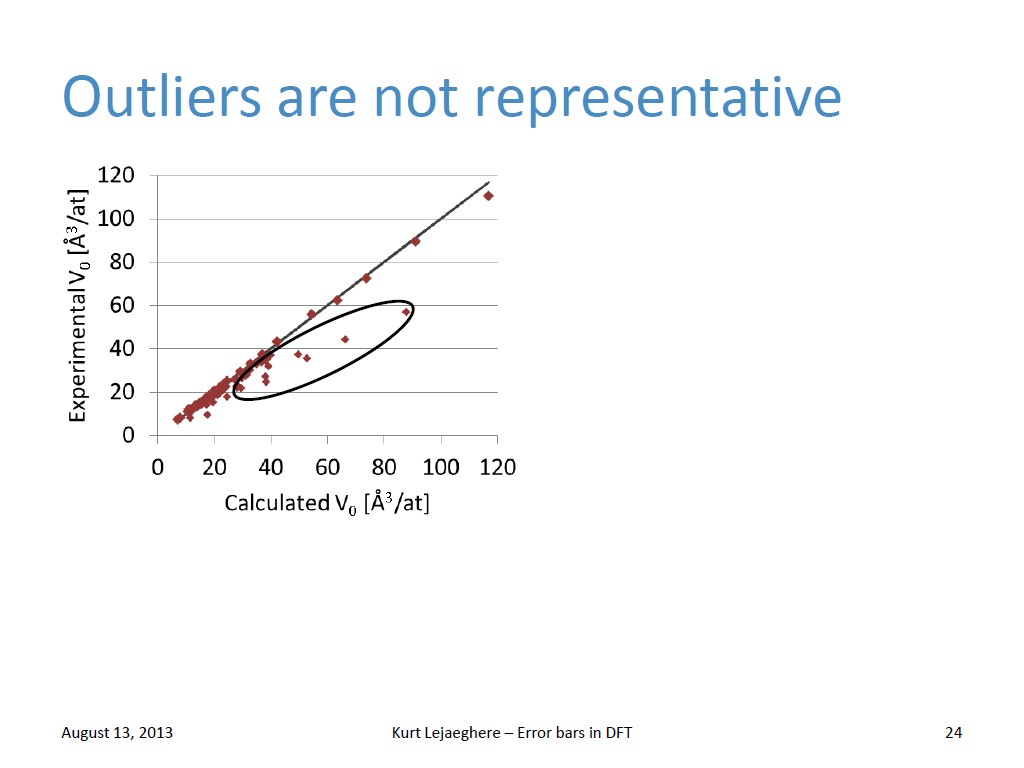 24. Outliers are not representativ…
1178.2449115782449
00:00/00:00
24. Outliers are not representativ…
1178.2449115782449
00:00/00:00 -
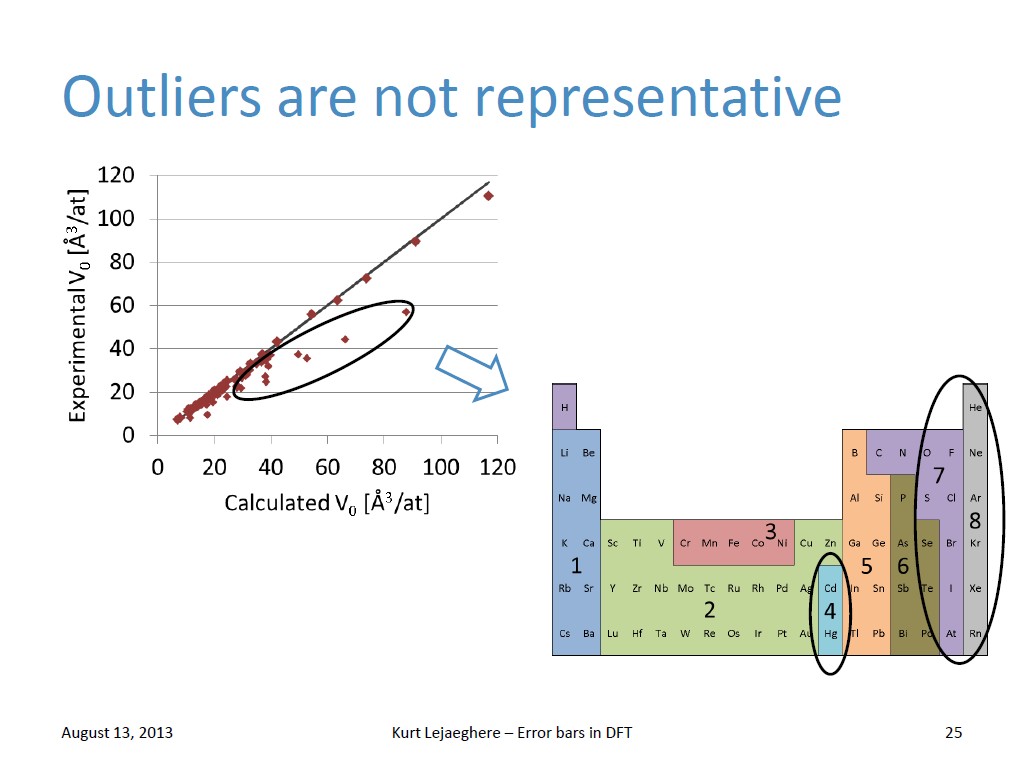 25. Outliers are not representativ…
1188.4551217884552
00:00/00:00
25. Outliers are not representativ…
1188.4551217884552
00:00/00:00 -
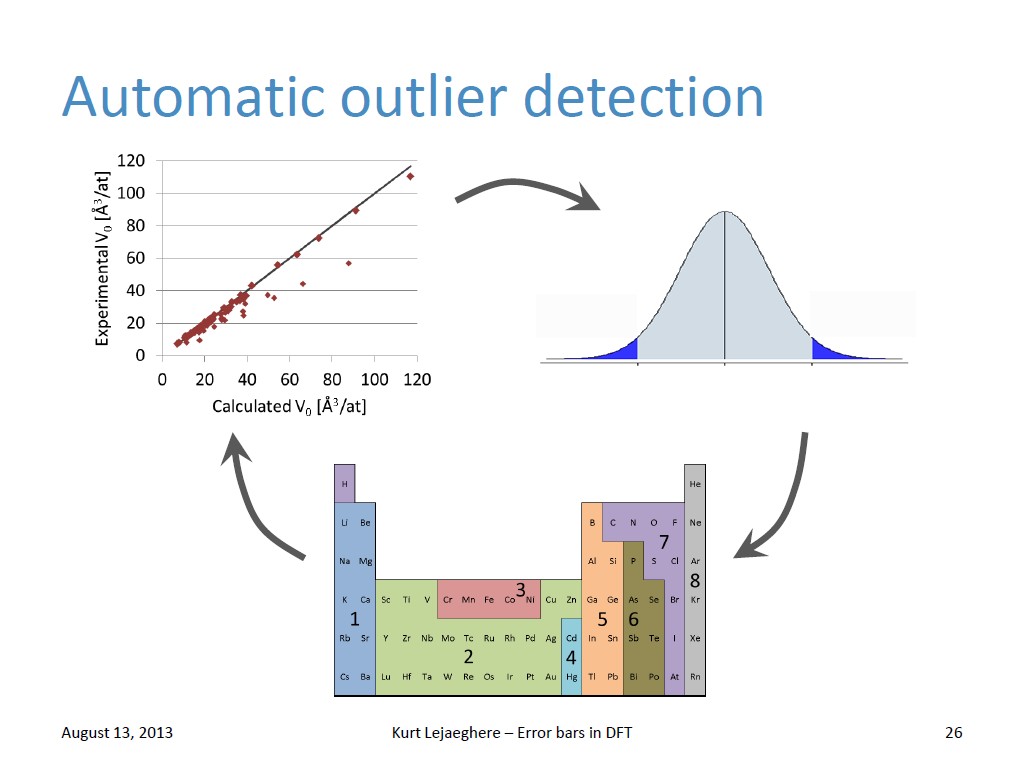 26. Automatic outlier detection
1247.3139806473141
00:00/00:00
26. Automatic outlier detection
1247.3139806473141
00:00/00:00 -
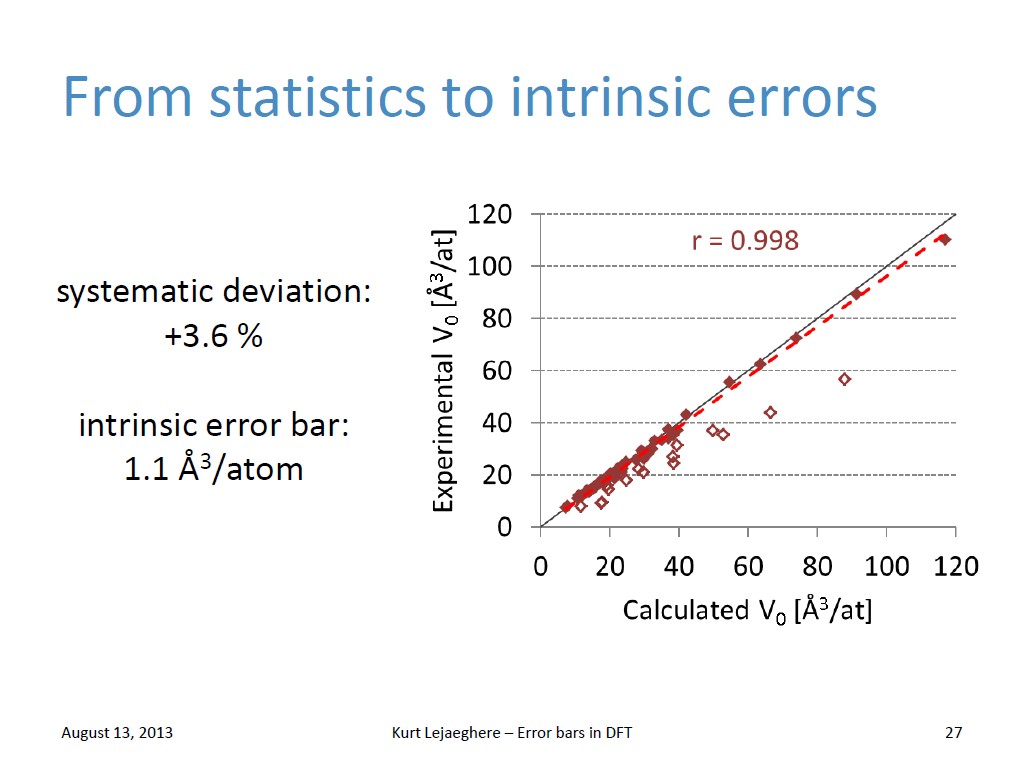 27. From statistics to intrinsic e…
1291.358024691358
00:00/00:00
27. From statistics to intrinsic e…
1291.358024691358
00:00/00:00 -
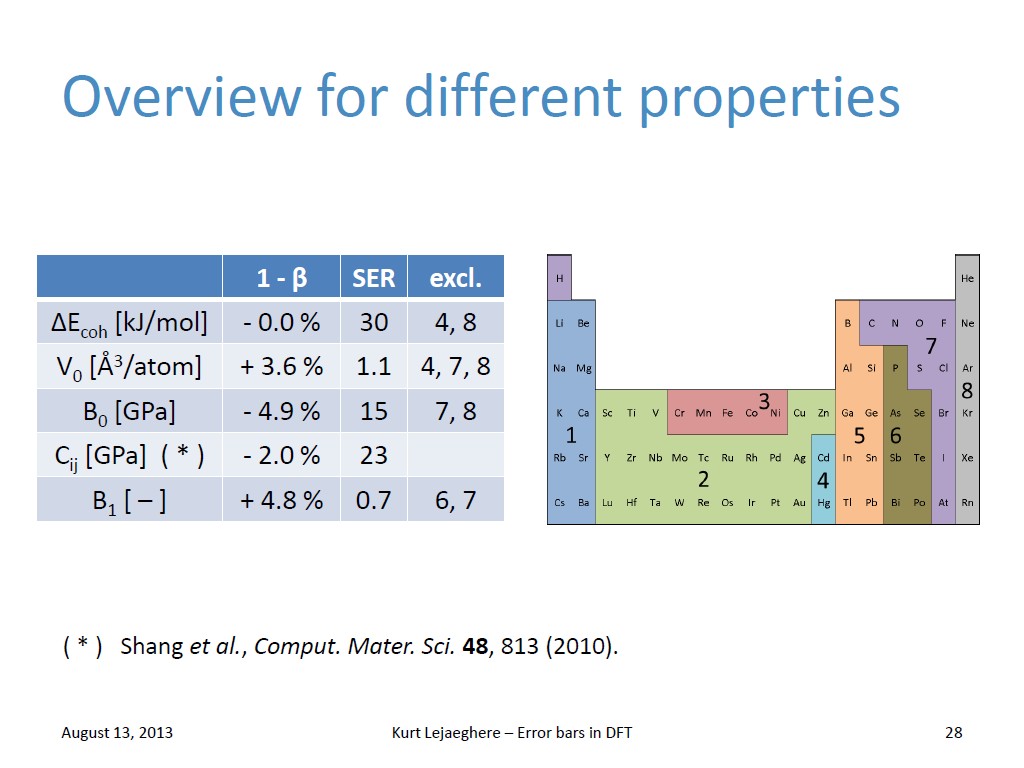 28. Overview for different propert…
1328.6286286286286
00:00/00:00
28. Overview for different propert…
1328.6286286286286
00:00/00:00 -
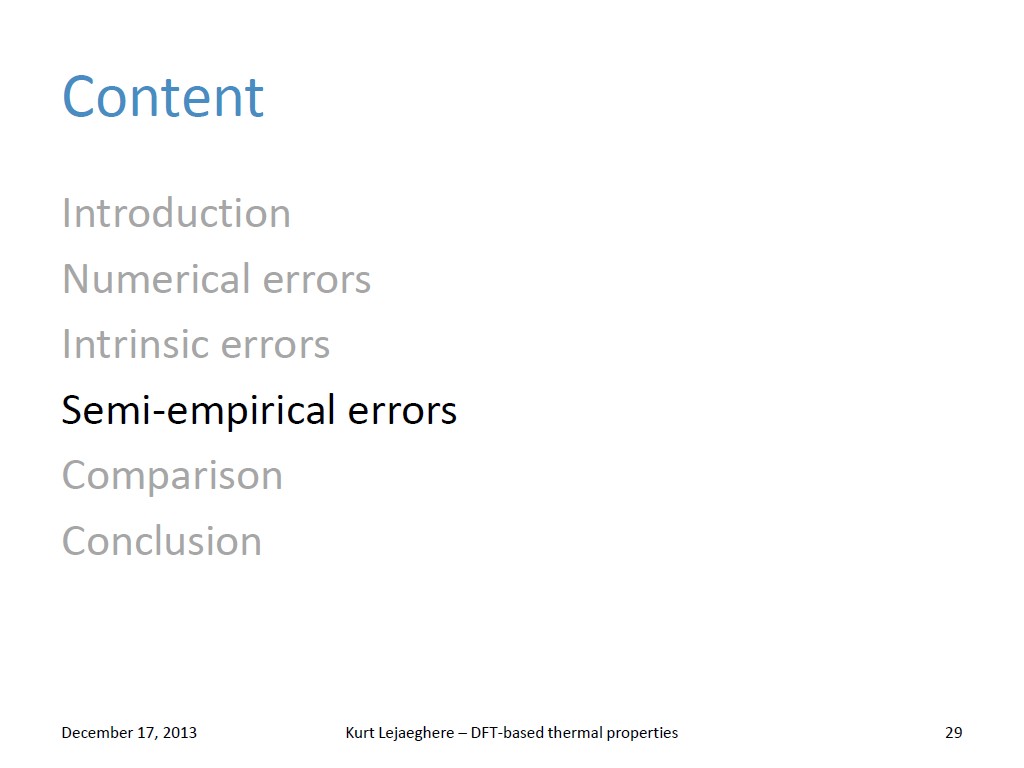 29. Content
1362.7961294627962
00:00/00:00
29. Content
1362.7961294627962
00:00/00:00 -
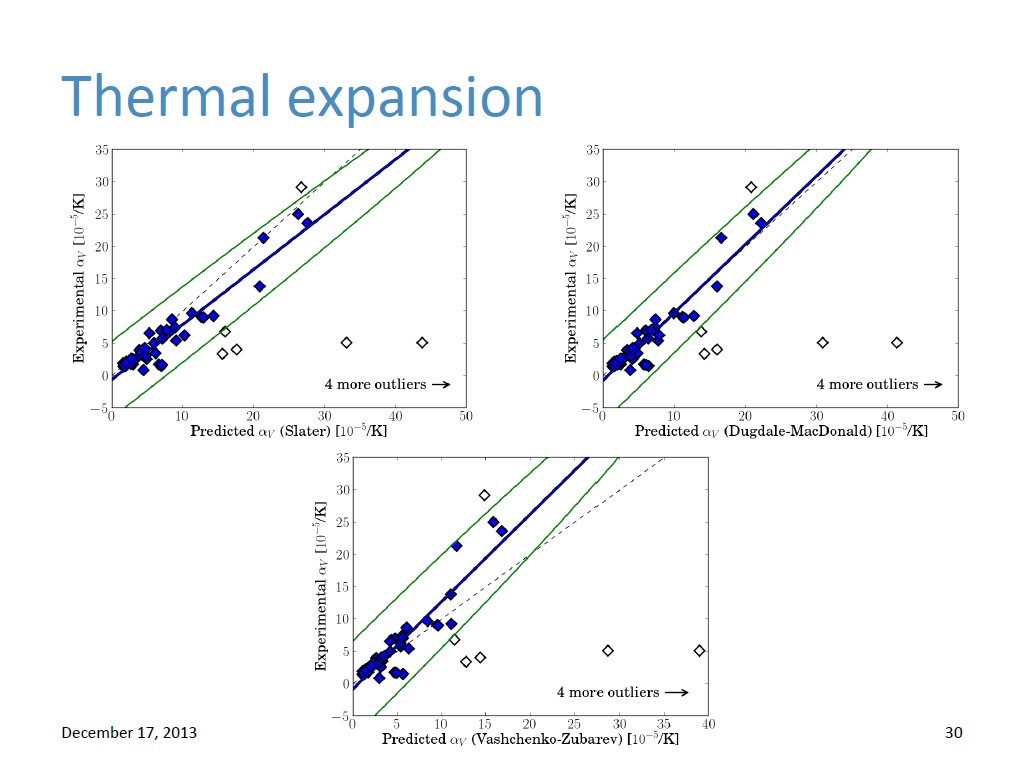 30. Thermal expansion
1368.4017350684019
00:00/00:00
30. Thermal expansion
1368.4017350684019
00:00/00:00 -
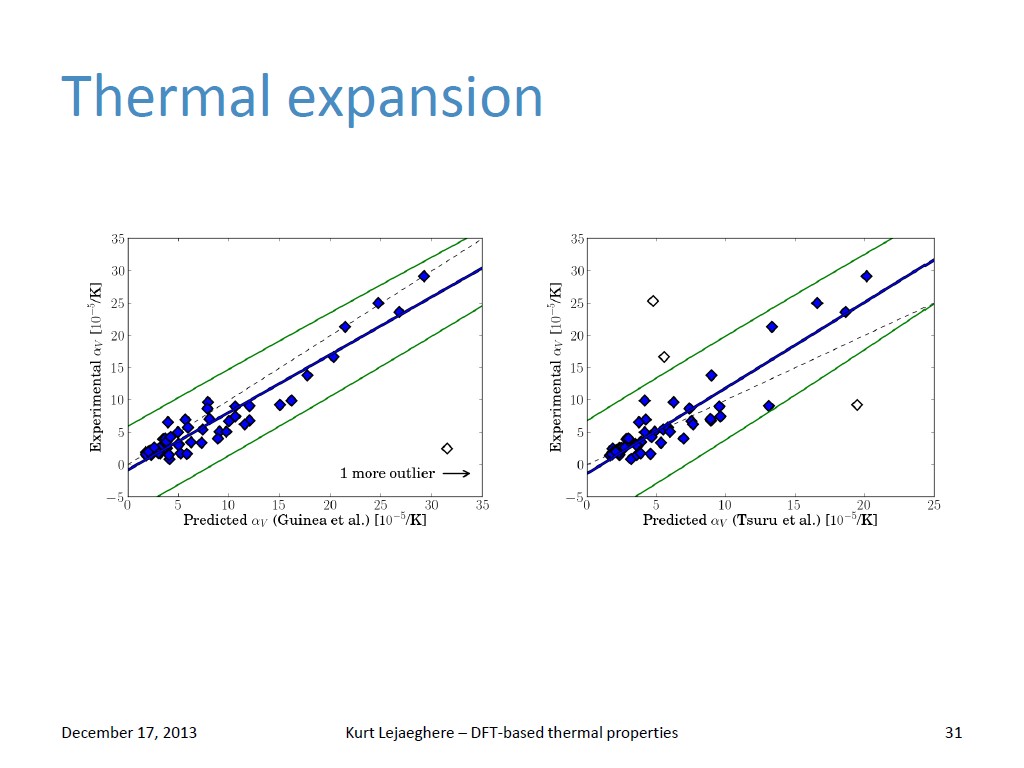 31. Thermal expansion
1411.0110110110111
00:00/00:00
31. Thermal expansion
1411.0110110110111
00:00/00:00 -
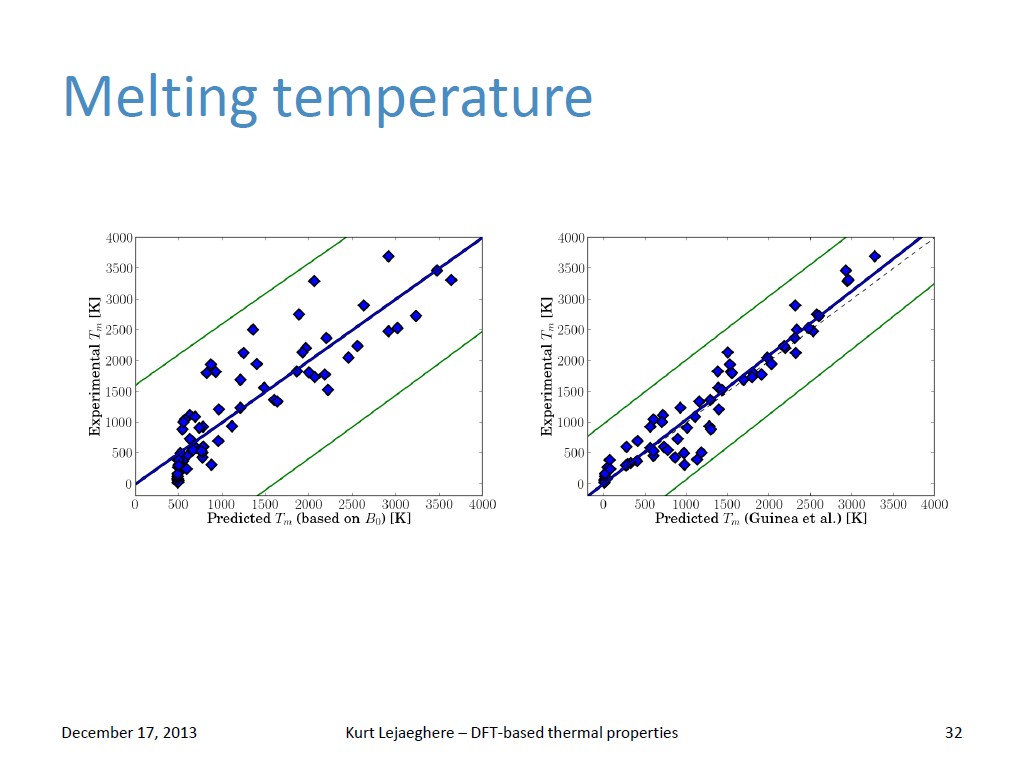 32. Melting temperature
1415.8491825158492
00:00/00:00
32. Melting temperature
1415.8491825158492
00:00/00:00 -
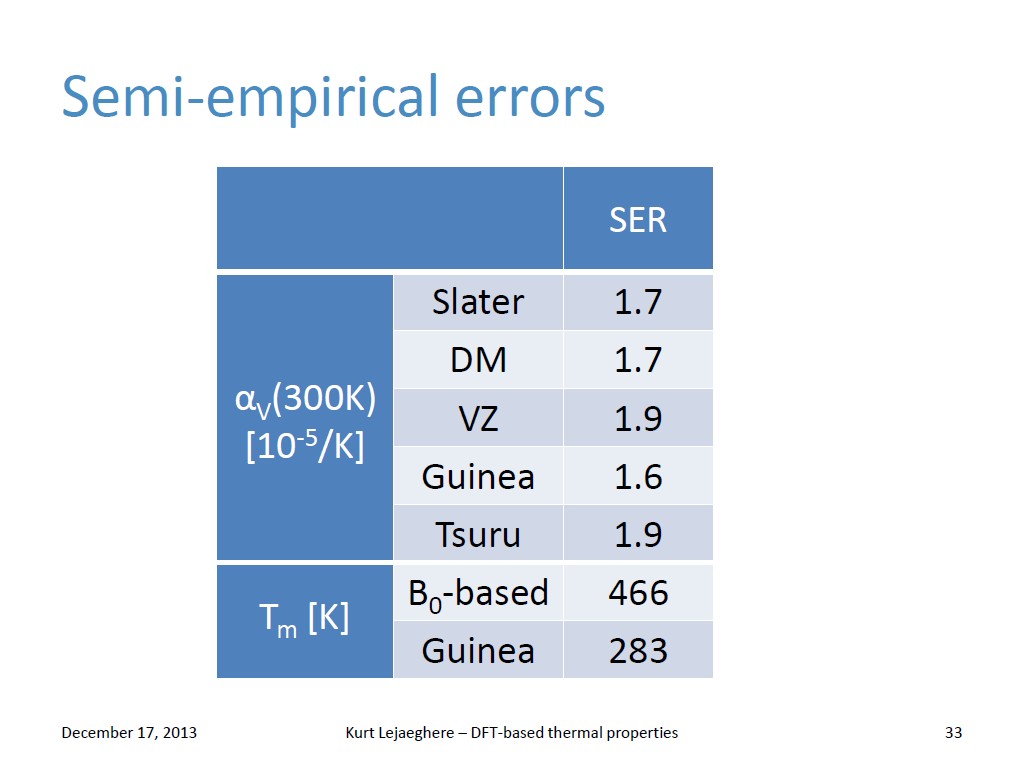 33. Semi-empirical errors
1426.6266266266266
00:00/00:00
33. Semi-empirical errors
1426.6266266266266
00:00/00:00 -
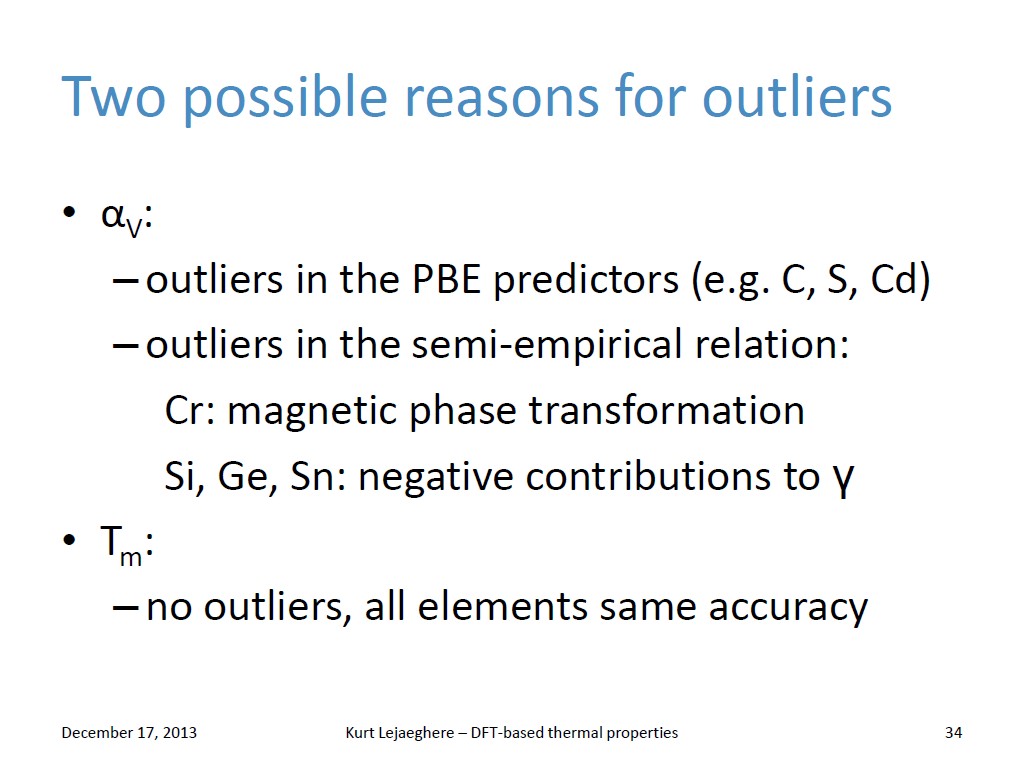 34. Two possible reasons for outli…
1463.2298965632299
00:00/00:00
34. Two possible reasons for outli…
1463.2298965632299
00:00/00:00 -
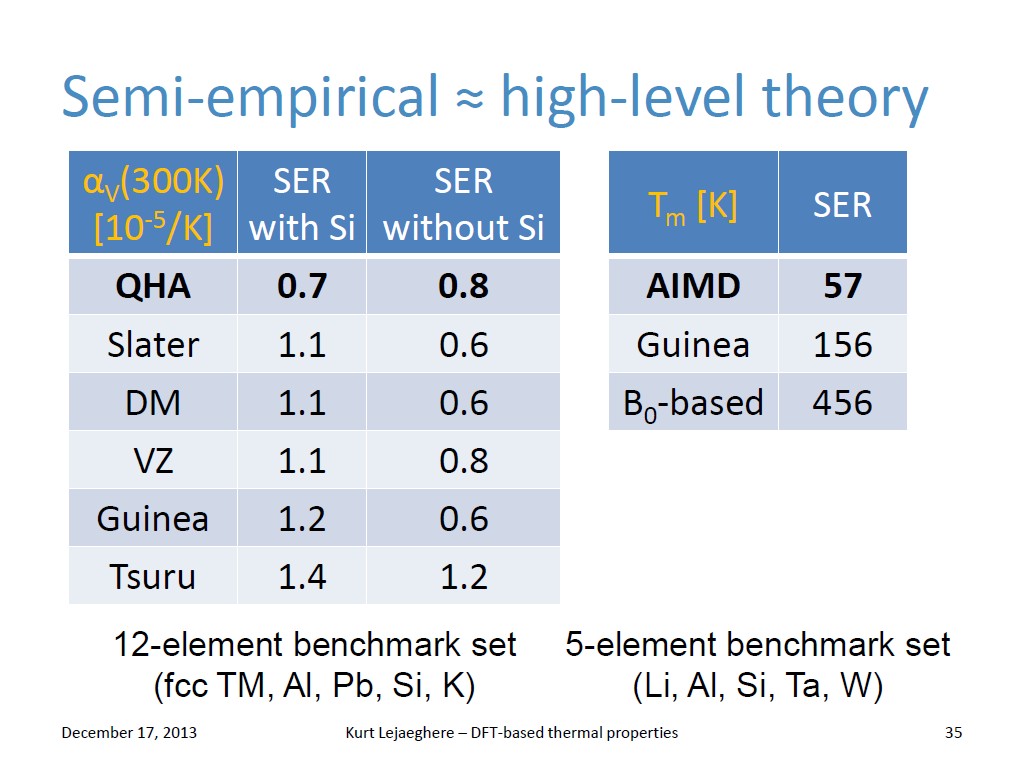 35. Semi-empirical ≈ high-level …
1616.016016016016
00:00/00:00
35. Semi-empirical ≈ high-level …
1616.016016016016
00:00/00:00 -
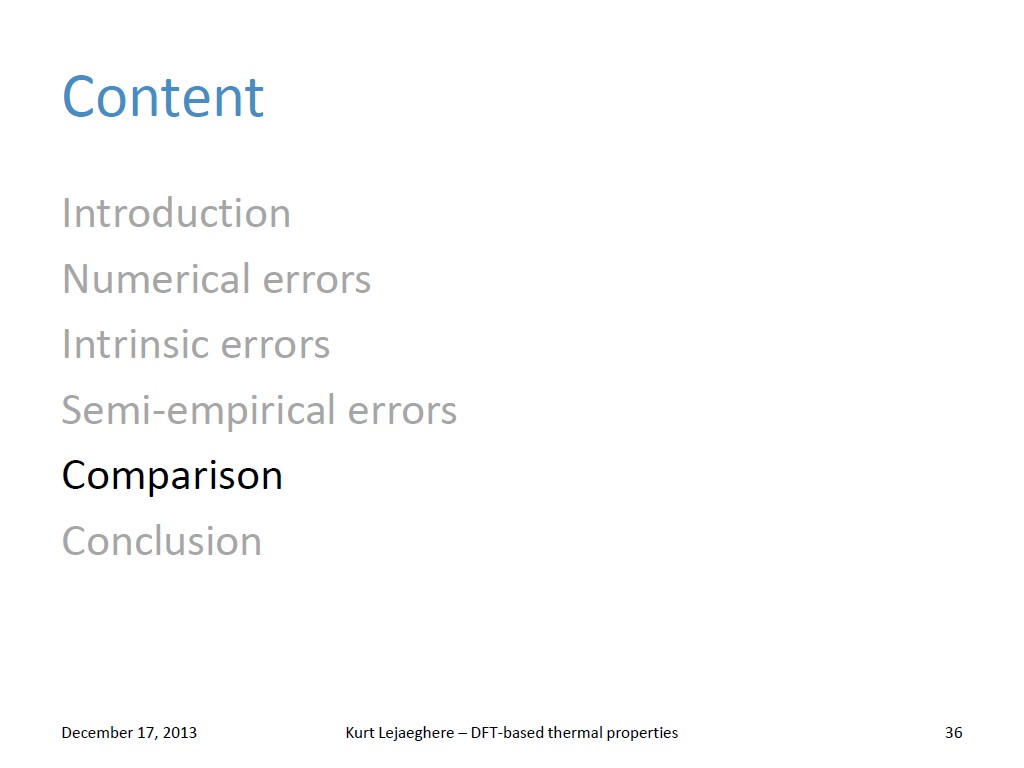 36. Content
1768.2015348682016
00:00/00:00
36. Content
1768.2015348682016
00:00/00:00 -
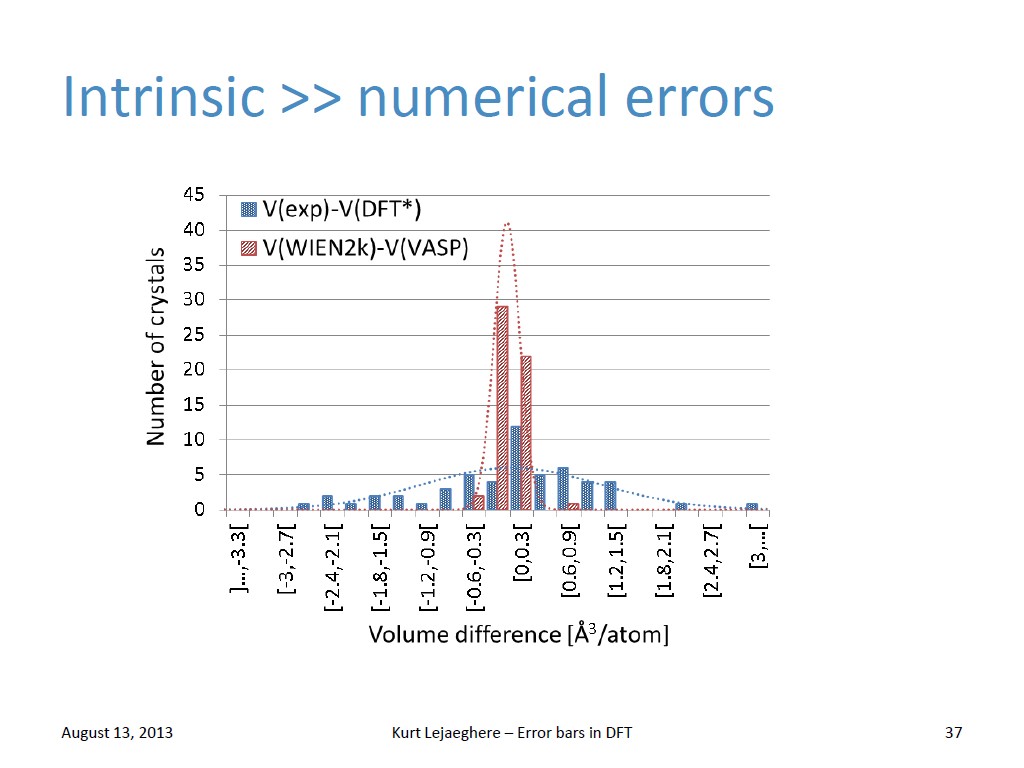 37. Intrinsic >> numerical errors
1778.4784784784786
00:00/00:00
37. Intrinsic >> numerical errors
1778.4784784784786
00:00/00:00 -
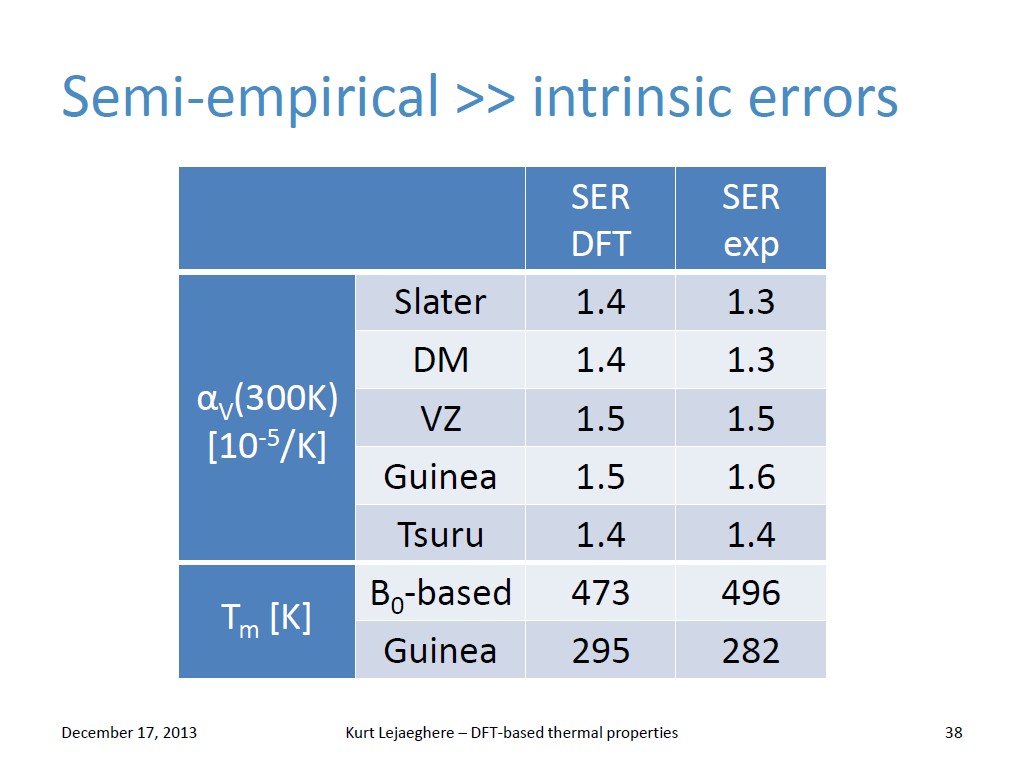 38. Semi-empirical >> intrinsic er…
1826.4931598264932
00:00/00:00
38. Semi-empirical >> intrinsic er…
1826.4931598264932
00:00/00:00 -
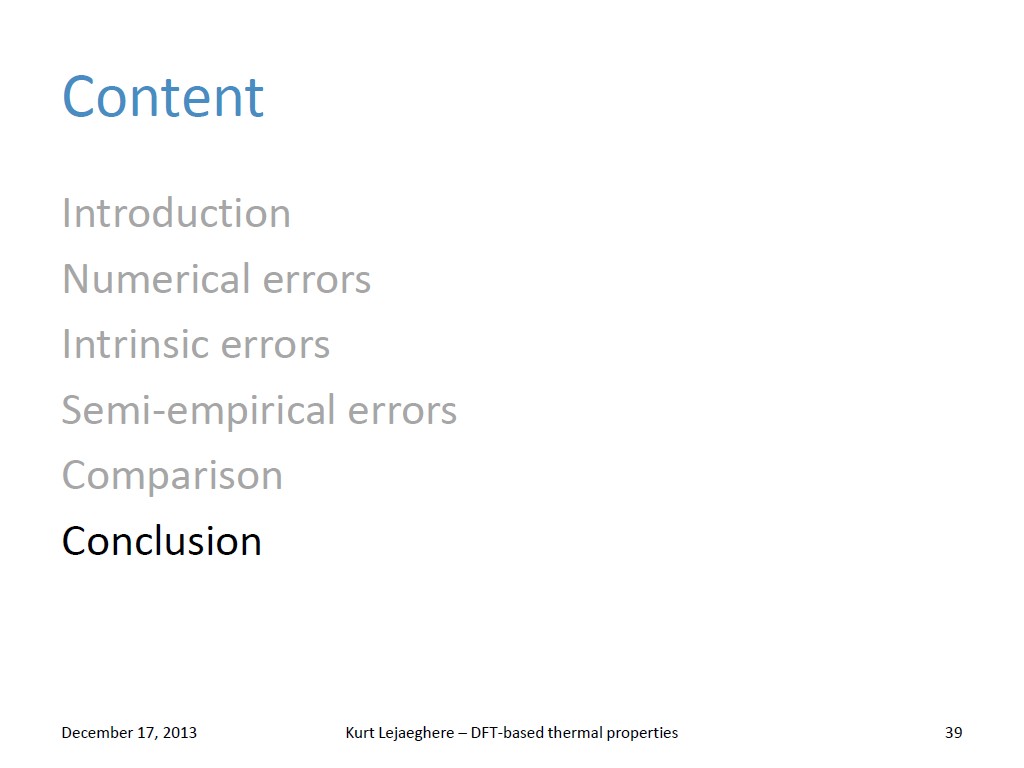 39. Content
1898.3650316983651
00:00/00:00
39. Content
1898.3650316983651
00:00/00:00 -
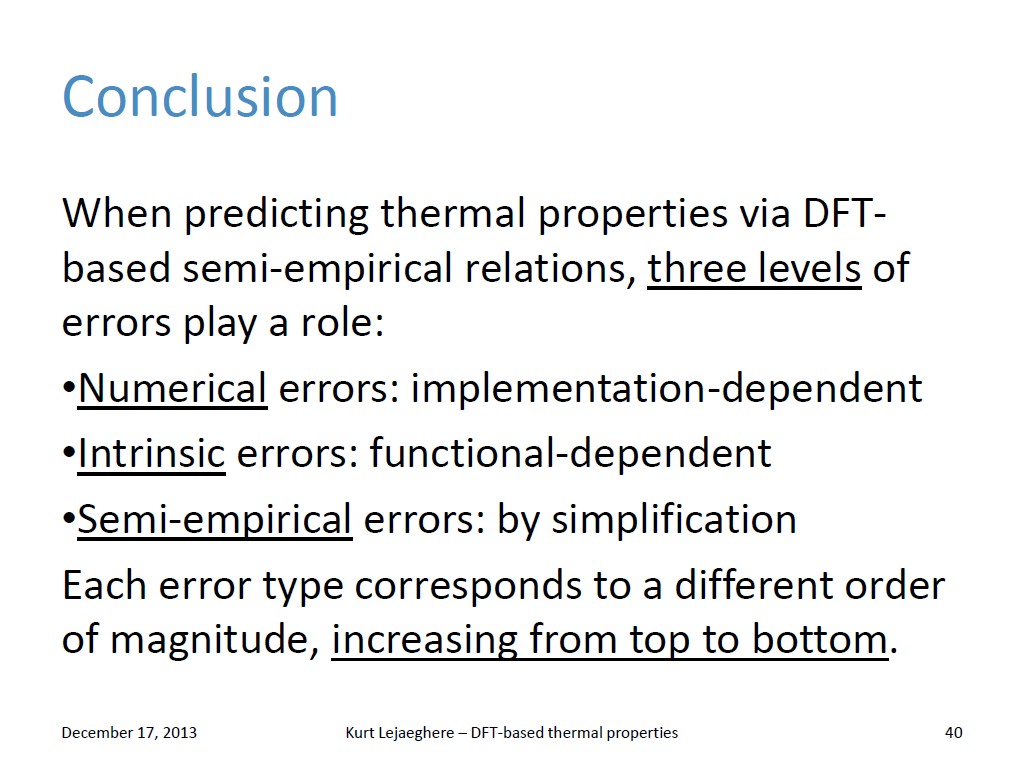 40. Conclusion
1902.5358692025359
00:00/00:00
40. Conclusion
1902.5358692025359
00:00/00:00 -
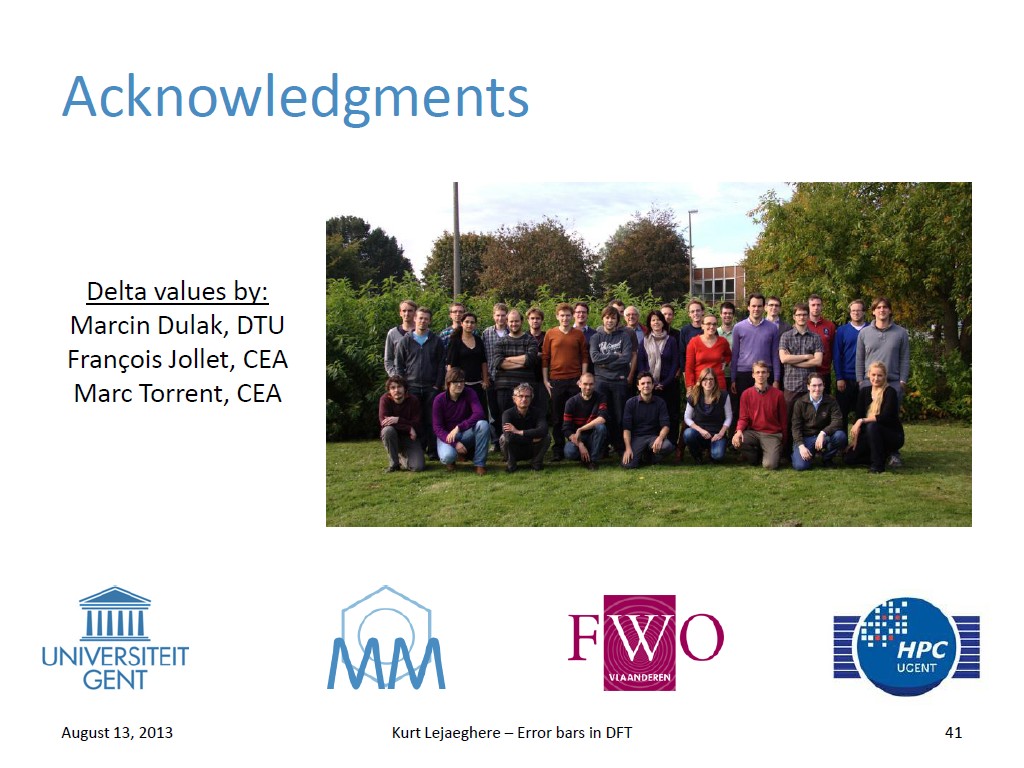 41. Acknowledgments
1942.9095762429097
00:00/00:00
41. Acknowledgments
1942.9095762429097
00:00/00:00 -
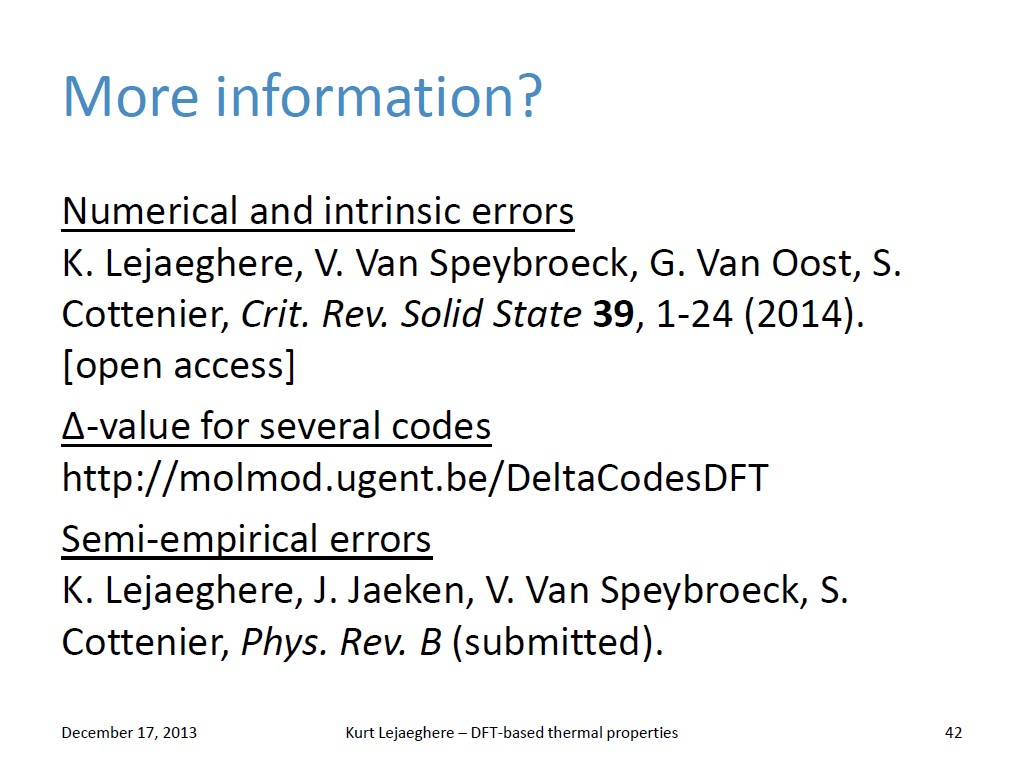 42. More information?
1964.964964964965
00:00/00:00
42. More information?
1964.964964964965
00:00/00:00